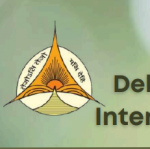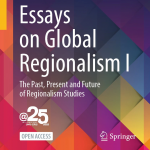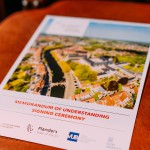Signing Ceremony of the Second Memorandum of Understanding
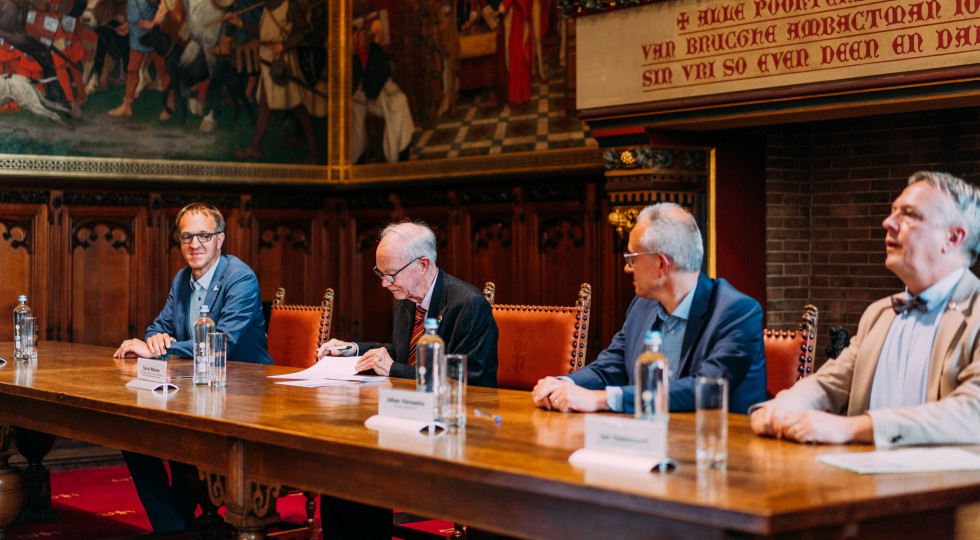
A model for how academic collaboration should be – that was the sentiment of the evening as the United Nations University, the Government of Flanders, Ghent University and the Vrije Universiteit Brussels signed the second Memorandum of Understanding on Tuesday 24 May, giving UNU-CRIS a further five years to advance its research on the various facets of regionalism and multi-level governance.
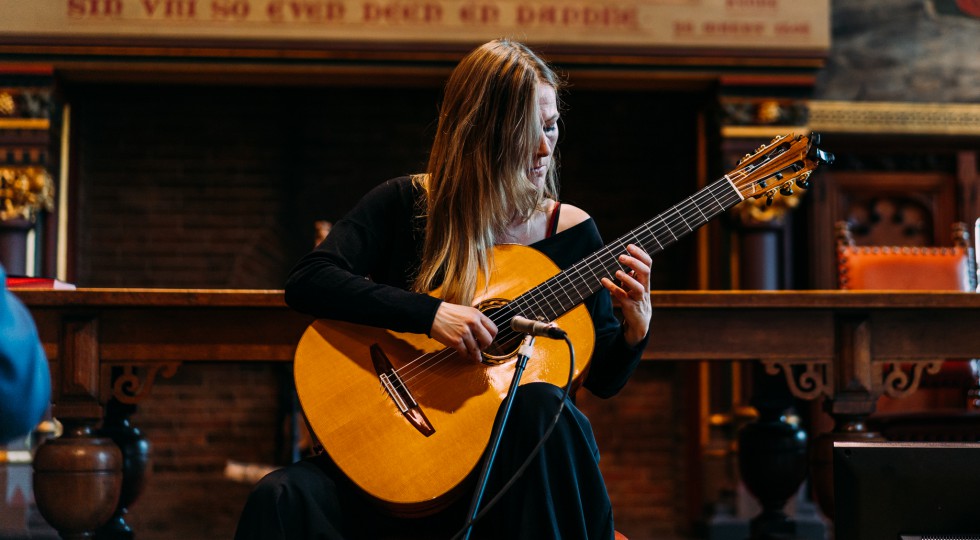
The celebration began with a musical intervention by Beatrijs Vankersschaever, music teacher at the Bruges Municipal Conservatory, with a beautiful rendition of Capricho Arabe, composed by Francisco Tárrega.
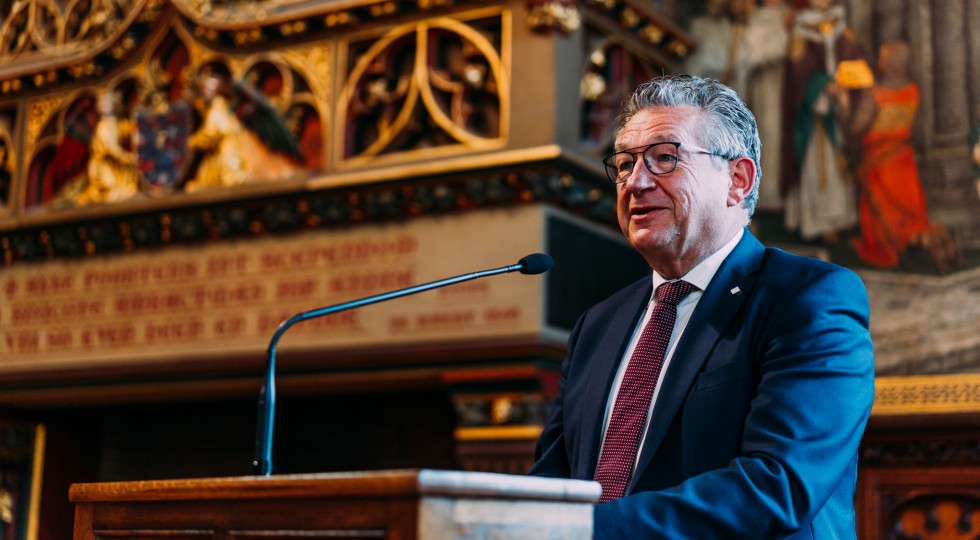
The first speech of the night came from the Mayor of Bruges, Dirk De fauw, who welcomed the guests to the historic Town Hall and outlined the city’s pleasure at having UNU-CRIS as part of its research and educational landscape.
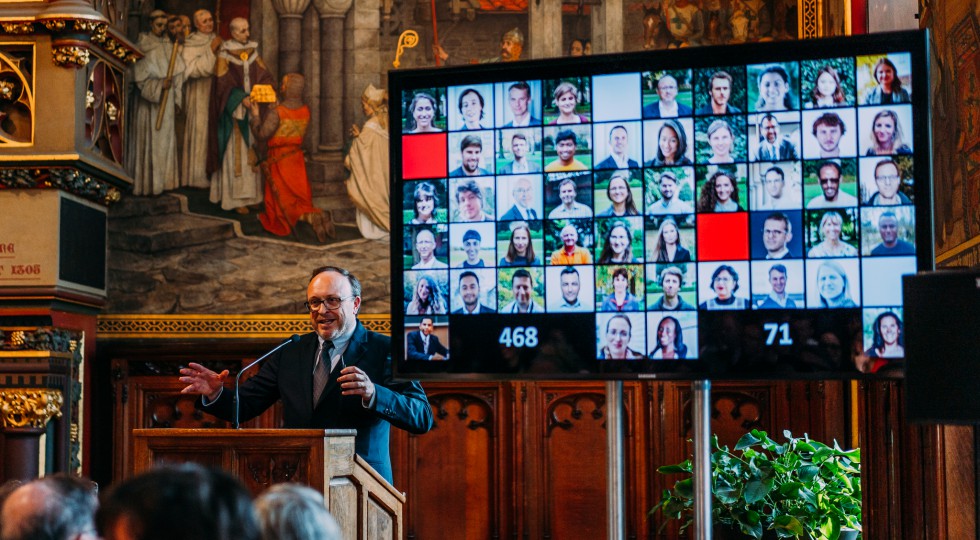
Mayor De fauw was followed by the Director of UNU-CRIS, Philippe De Lombaerde, who gave a history of the institute, from its beginnings as a research arm of the College of Europe, through to the new trilateral partnership with Ghent University and the Vrije Universiteit Brussel in 2016, to where it finds itself today, as an internationally-renowned hub of knowledge and policy-relevant research, welcoming scholars over 450 scholars from more than 70 countries to Bruges throughout its 21-year history.
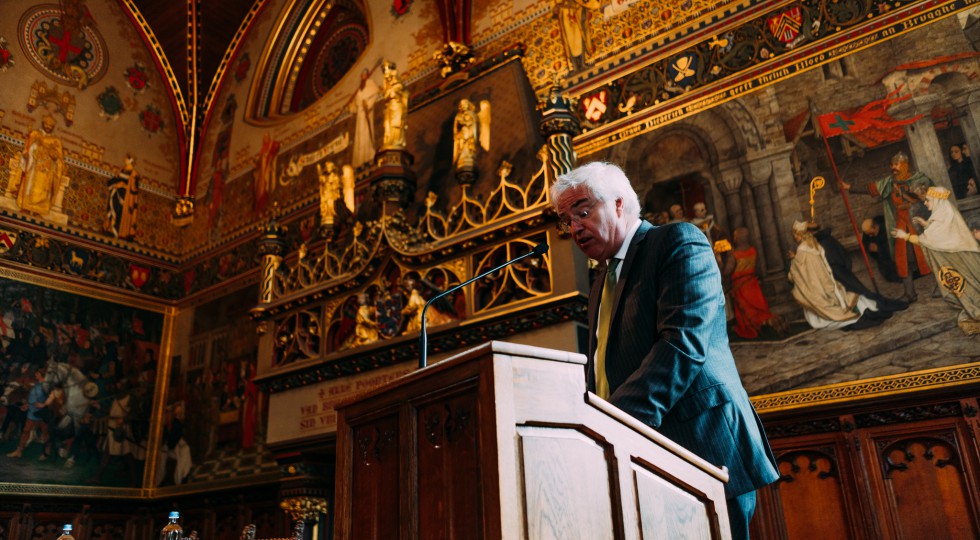
Next, the Governor of West Flanders, Carl Decaluwé, spoke about the province’s history as a proactive and determined hub of business, culture, learning and innovation, and how the province is pleased to host an institute harbouring many of the same values in its capital, Bruges.
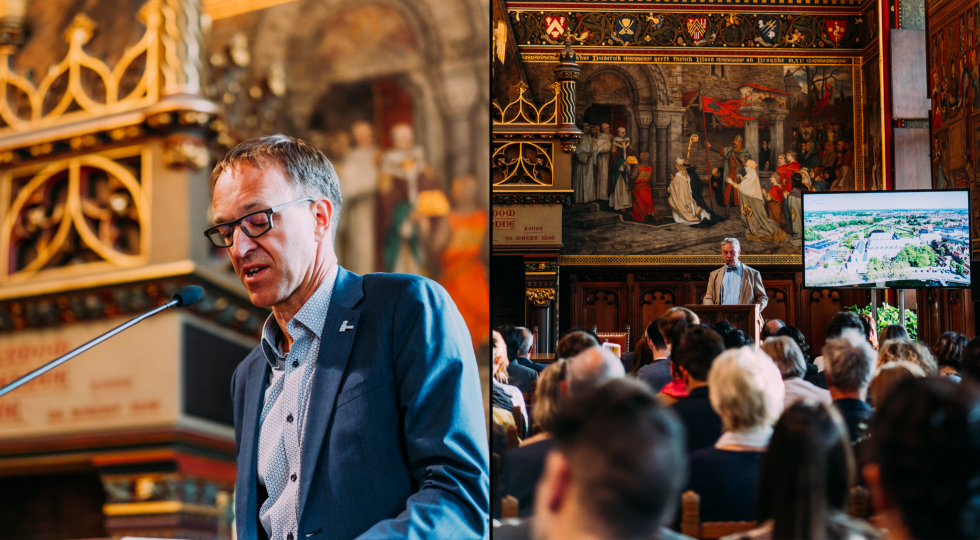
Sharing the views of the partners, Ghent University Rector Rik Van De Walle and VUB Rector ad interim Jan Danckaert took to the podium next, sharing their belief in the power of collaboration across the various levels of the research environment, and how there is a clear necessity for supranational organisations, such as the United Nations, to work with local universities, to share and generate the knowledge needed to tackle our most pressing problems. As an interdisciplinary, multi-level research structure, UNU-CRIS should be the model for research institutes.
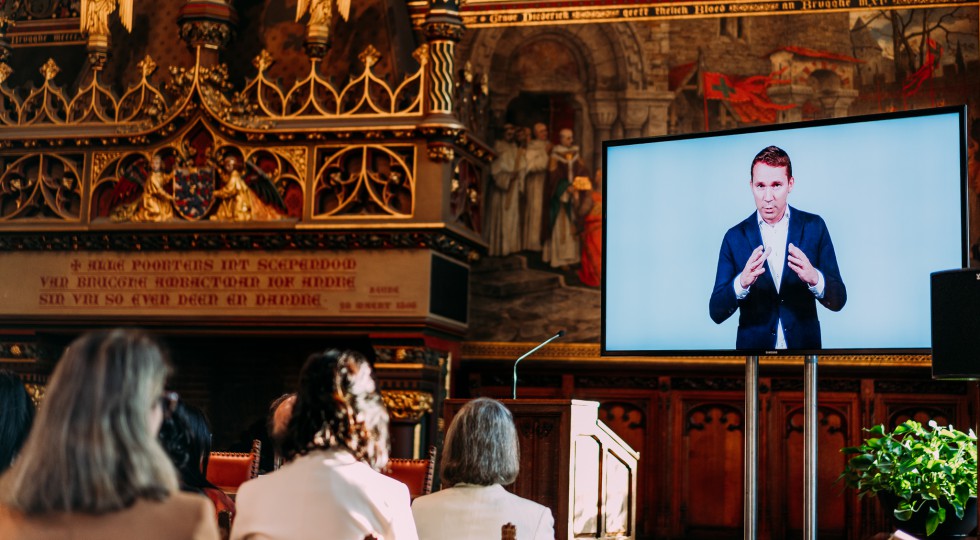
Via a video message, the Flemish Minister of Economy, Innovation, Work, Social Economy and Agriculture, Jo Brouns, reinforced Flanders’ commitment to research and innovation, and how the government is proud and steadfast in its investment in UNU-CRIS as a key interlocutor in the deliverance of evidence-based policy. “Knowledge is nothing if not shared” concluded the minister, a nod to the importance of generating knowledge and ensuring it is put into practice for the betterment of society.
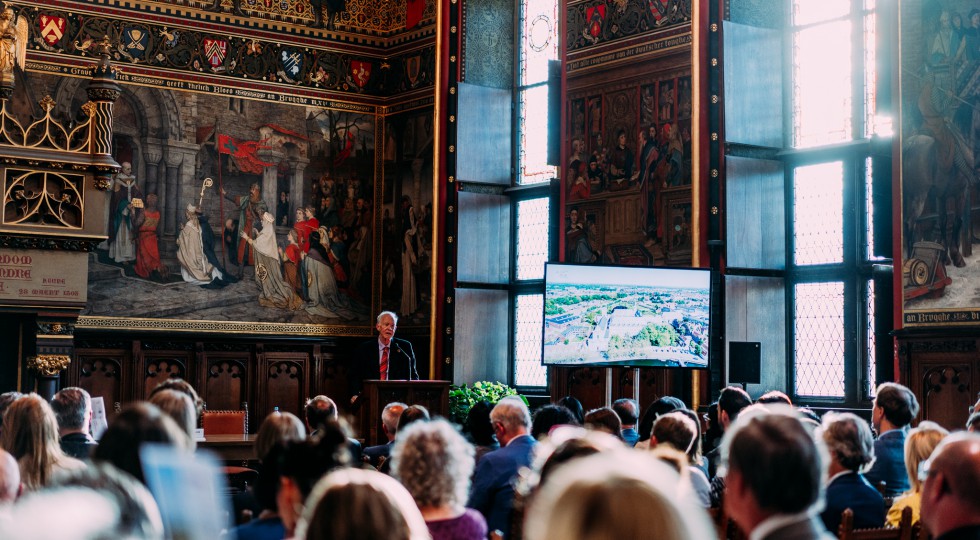
The audience then heard from David Malone, Under-Secretary-General of the United Nations and Rector of UNU, as he outlined the importance of collaborative research in these times of geopolitical instability, thanking the partners and the Flemish government for their support in UNU-CRIS, and sharing his belief in the institute and its ability to deliver in the coming five years.
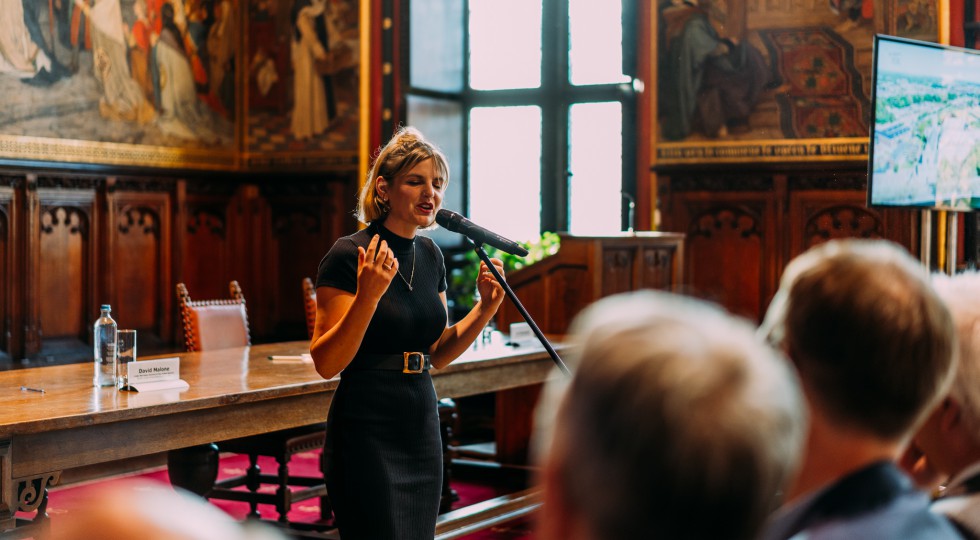
Finally, the audience was treated to a recital by Nina Everaert, the town poet of Damme, who shared the story of her grandmother and how that has shaped her view of the world today.

